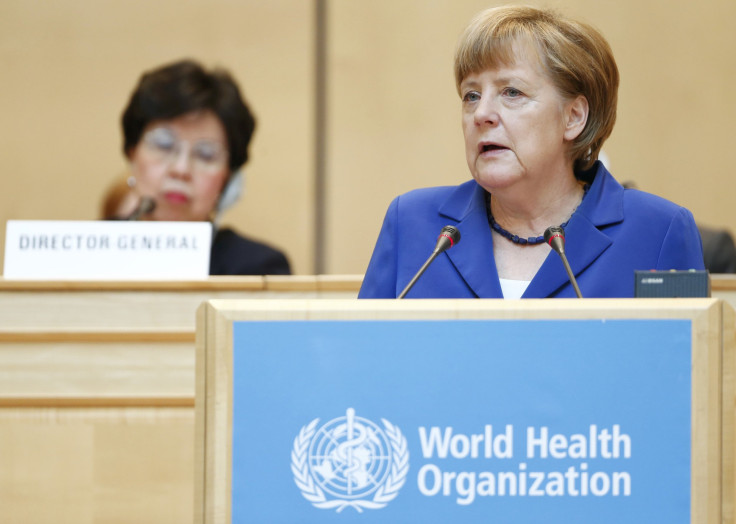At World Health Assembly, World Health Organization Makes Plans For Change After 'Catastrophic' Response To Ebola Virus Outbreak

Angela Merkel has outlined a plan for the World Health Organization after its handling of the Ebola outbreak, which she labeled a “catastrophe.” The German chancellor's comments come just a week after Liberia, one of the worst-hit countries, was declared free of the virus, and days after a scathing report outlining the many flaws in the WHO’s response to the outbreak that killed 11,000 people since March 2014. Merkel has joined critics who say the situation could have been handled better and faster.
Chancellor Merkel: Ebola outbreak in West Africa was a painful reminder to all of us for urgent international action #WHA68
- WHO (@WHO) May 18, 2015“The struggle [against Ebola] is only won if there are no new cases and if we have learned the lessons from this crisis. We should have reacted earlier,” she told the World Health Assembly, the WHO’s decision-making body, in Geneva on Monday, according to an Associated Press report.
“If we react faster, and act faster, we will manage to prevent a crisis like Ebola the next time,” said Merkel, who is the host this year of the annual WHA meeting, which continues until May 26.
German Chancellor Merkel with Dr. Margaret Chan, at todays opening of 68th World Health Assembly at the U.N. Geneva pic.twitter.com/53hhhi7GGk
- Pax Press (@PaxPressAgency) May 18, 2015According to Merkel’s plan, the crucial decision to publicly warn about an impending epidemic will no longer fall to the WHO director-general, but a newly created body within the organization not affected by politics, according to a Guardian report.
Last week, an independent panel of international health experts said the WHO was “behind the curve” in its initial response to reports of an Ebola outbreak. They argued the agency didn’t act fast enough to get the word out and spread awareness about how to contain the disease through announcements and media.
“At an earlier stage these resources could have been made available and known systems put in place; these might have averted the crisis that led to the need to establish the United Nations Mission for Ebola Emergency Response,” the report said.
Merkel said Germany would spend 200 million euros ($227 million dollars) to help developing countries create better health infrastructure. A large portion of the donation would be allocated to Ebola-affected countries in West Africa.
At the same meeting on Monday, WHO Director-General Margaret Chan announced plans to set up a $100 million fund to be used in the event of a crisis like Ebola.
“I do not ever again want to see this organization faced with a situation it is not prepared, staffed, funded or administratively set up to manage,” Chan said, according to Reuters. She said she hopes to have this new system in place by the end of the year.
© Copyright IBTimes 2024. All rights reserved.






















